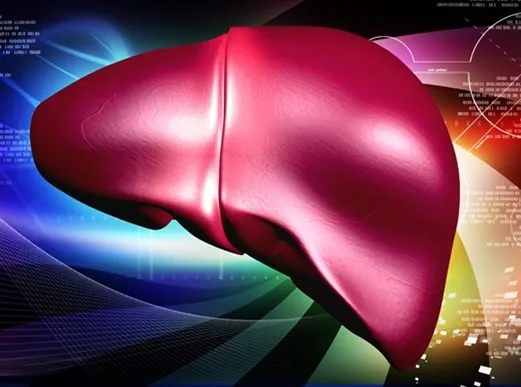
Revolutionary AI Detects Early-Stage Liver Disease Before It’s Too Late!
2024-11-25
Author: Daniel
Introduction
Liver disease is often a silent but dangerous health threat. Unfortunately, many people do not become aware of their condition until it reaches advanced stages, making treatment more difficult.
Understanding MASLD
Among the various types of liver diseases, metabolic-associated steatotic liver disease (MASLD) stands out as the most common form. MASLD occurs when the liver struggles to properly process fat and is associated with serious conditions such as obesity, Type 2 diabetes, and high cholesterol. The urgency of early detection cannot be overstated, as this disease can escalate rapidly into severe liver complications. However, the early stages of MASLD are often asymptomatic, complicating the diagnosis.
Groundbreaking AI Study
In a groundbreaking study from the University of Washington, researchers have unveiled how an artificial intelligence (AI) algorithm can be a game changer in early detection. This innovative algorithm analyzes electronic health records (EHRs) to identify signs of early-stage MASLD.
Study Findings
By scrutinizing imaging data from three different sites within the University of Washington Medical System, the researchers discovered that out of 834 patients assessed, only 137 had a formal diagnosis of MASLD on record. Alarmingly, this means that a staggering 83% of these patients were undiagnosed, illustrating how easily this preventable disease can slip through the cracks despite clear indicators in their EHRs.
Expert Insights
Lead researcher Dr. Ariana Stuart, a resident at the University of Washington's Internal Medicine Residency Program, emphasized the implications of their findings. "A significant proportion of patients who meet criteria for MASLD go undiagnosed. This is concerning because delays in early diagnosis increase the likelihood of progression to advanced liver disease," she explained.
However, Dr. Stuart also urged caution in interpreting the results: “People should not view our findings as a reflection of inadequate primary care training or management. Instead, this study validates how AI can enhance physician workflows and tackle the limitations inherent in traditional clinical practices,” she added.
The Future of AI in Healthcare
As AI technology continues to transform healthcare, the promise of early diagnoses and preventive measures against diseases like MASLD is becoming more achievable. With obesity rates and related metabolic disorders on the rise globally, this advancement could herald a new era in liver disease prevention, saving countless lives by catching issues before they become critical.
Conclusion
Stay tuned for more updates on AI innovations driving breakthroughs in medical diagnostics!



 Brasil (PT)
Brasil (PT)
 Canada (EN)
Canada (EN)
 Chile (ES)
Chile (ES)
 España (ES)
España (ES)
 France (FR)
France (FR)
 Hong Kong (EN)
Hong Kong (EN)
 Italia (IT)
Italia (IT)
 日本 (JA)
日本 (JA)
 Magyarország (HU)
Magyarország (HU)
 Norge (NO)
Norge (NO)
 Polska (PL)
Polska (PL)
 Schweiz (DE)
Schweiz (DE)
 Singapore (EN)
Singapore (EN)
 Sverige (SV)
Sverige (SV)
 Suomi (FI)
Suomi (FI)
 Türkiye (TR)
Türkiye (TR)